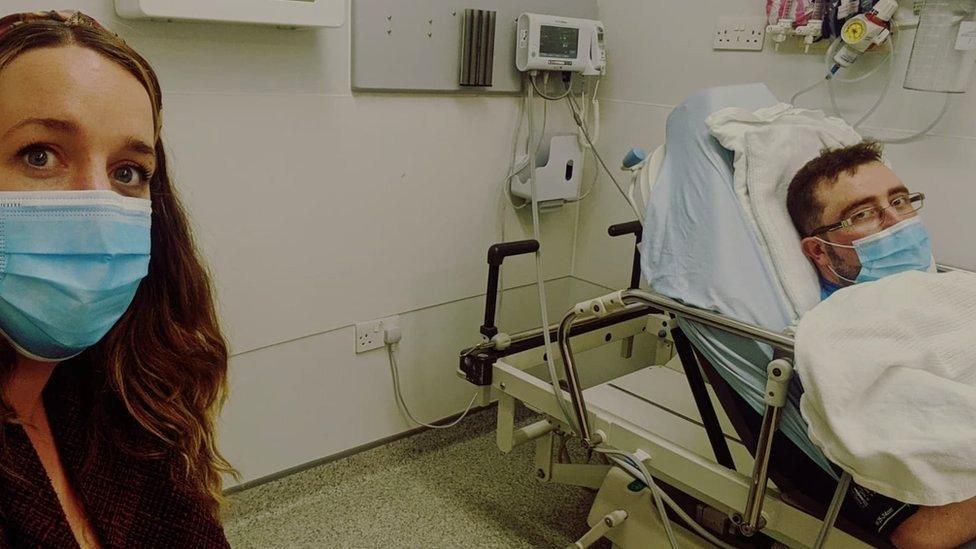Families urged to bring NHS hospital patients home for Christmas
- Published

Families are being urged to help ease the pressure on Scotland's hospitals by taking their relatives home for Christmas if they are ready to leave.
The health service is facing its worst levels of delayed discharge with about one in nine hospital beds occupied by a patient well enough to go home.
NHS Greater Glasgow and Clyde has now asked for families' help.
The board wants relatives to help them get patients who are ready to be discharged home for Christmas.
But it stressed "the care doesn't stop" when people leave hospital.
Data from NHS Greater Glasgow and Clyde (NHSGGC), Scotland's largest health board, shows that in the 24 hours to 14:00 on Tuesday there were 304 delayed discharges at its hospitals.
Without enough free beds to admit new patients, waiting times in emergency departments get longer and ambulances can't get back on the road to answer 999 calls.
Prof Angela Wallace, executive director of nursing at NHSGGC, said: "No one wants to be in hospital at Christmas and we're doing all we can to support those who are well enough to go home or to a care home setting to do so.
"Often with discharging when someone has been unwell, we do need to support families around the confidence around that, and to let them know not only will we let them get as safe a discharge as possible for their loved ones, but we are there in terms of care and support at home too.
"The care doesn't stop when they are discharged."
Prof Wallace added it is better for patients' health if they can avoid prolonged hospital stays but also frees up space in hospitals which are operating at near to capacity.

'I wanted to be home'
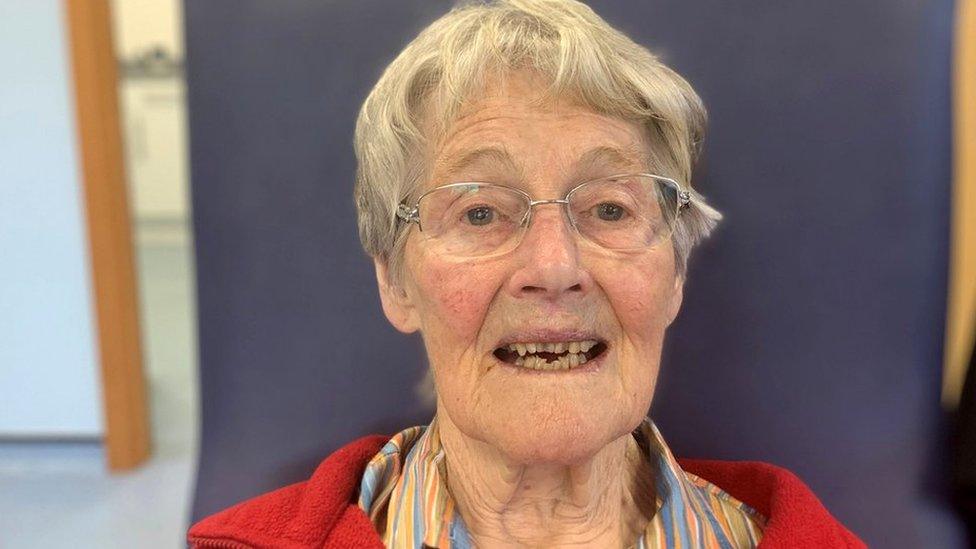
Joan Campbell, 88, was taken to hospital after a fall at home
The top of the hill where Paisley's Royal Alexandra Hospital stands is a microcosm of the challenges facing the NHS.
To the right is a slew of cars, ambulances and patients all pointed towards the doors of the busy A&E and access to the health service.
On the left is the hospital's "discharge lounge" where staff diligently get patients ready to go home but where every second seat in the room is empty.
The equation for hospital bosses is simple, there are too many people coming in the doors on the right and not enough leaving the doors on the left.
The discharge lounge is one initiative to try and address this; moving the patients well enough to go home from their hospital beds into a waiting area for their onward journey.
Joan Campbell was happy sat in the lounge knowing that, with Christmas on the horizon, she would be leaving that day.
"I wanted to be home, I'm not going to be doing anything, it'll be my family that will be doing it all," she explains.
The 88-year-old was admitted to the hospital after a fall at home and is ready to continue her recovery back there following an operation on her hip despite what she says was great care "from the tea lady to the heid bummer".
She adds, "They need the beds. They are so busy but they never seem to get worried or anxious about what was going to happen to the patients. Patients were there first priority. I won't have a bad word said against them."

According to Public Health Scotland, in 2022/23 there were 661,705 days spent in hospital by people whose discharge was delayed.
This is the highest annual figure reported and an increase on 2021/22 (540,302) and 2019/20 (542,204).
Despite this, the proportion of overall inpatients seen by hospitals who are delayed in leaving is quite small.
Last year there were 18,157 discharges from hospital following a period of delay, accounting for 3% of adult inpatient discharges (541,747).
A lack of care home spaces or supported living packages is the main reason for the delays.
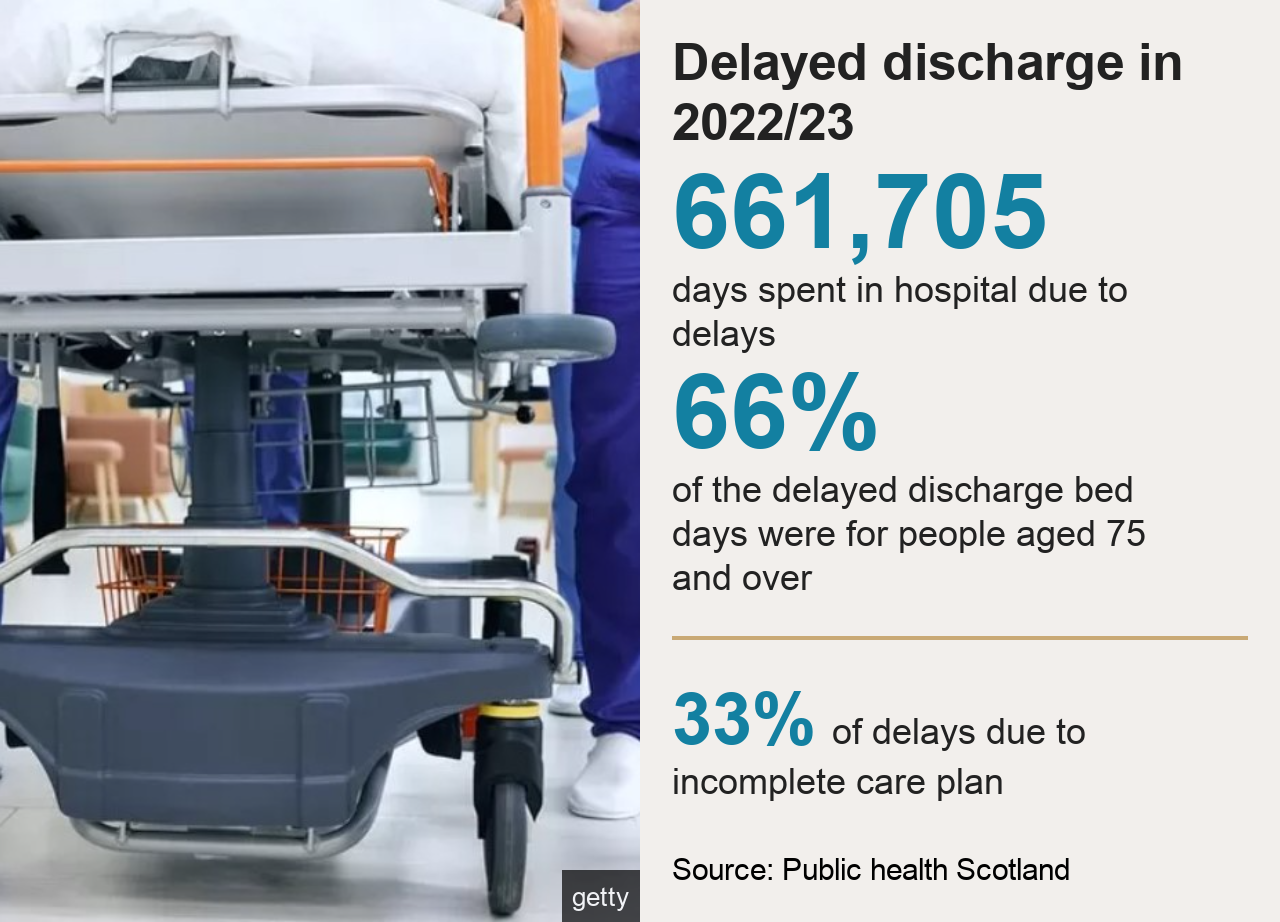
Related topics
- Published14 December 2023
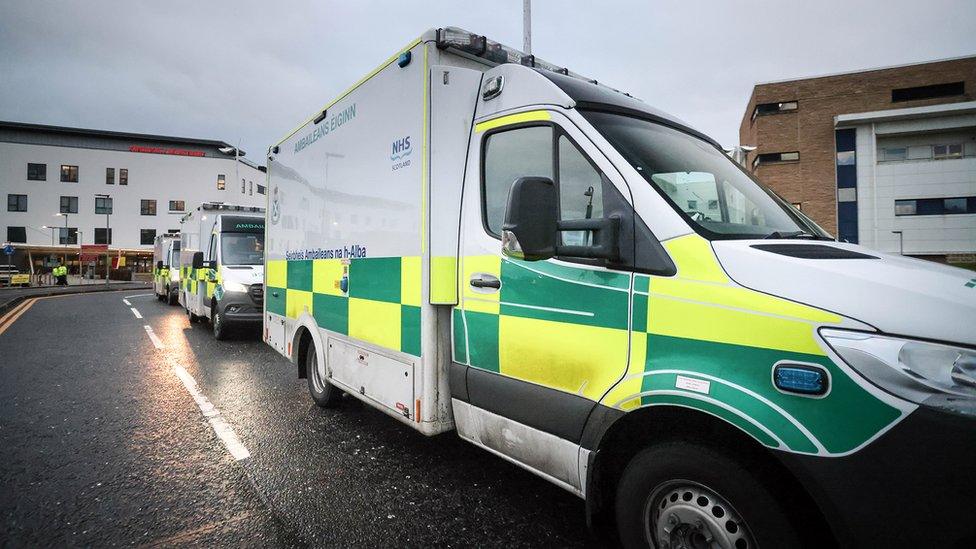
- Published28 November 2023
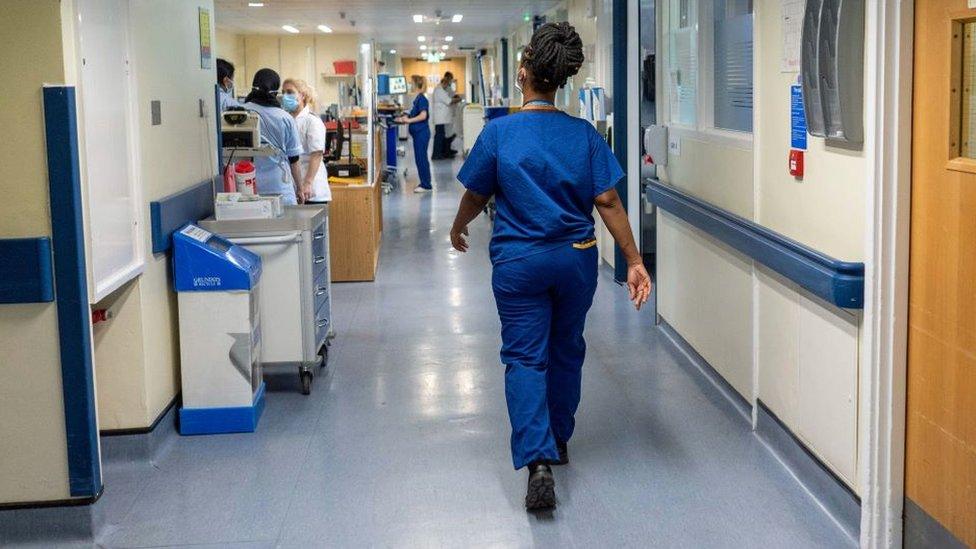
- Published31 October 2023
